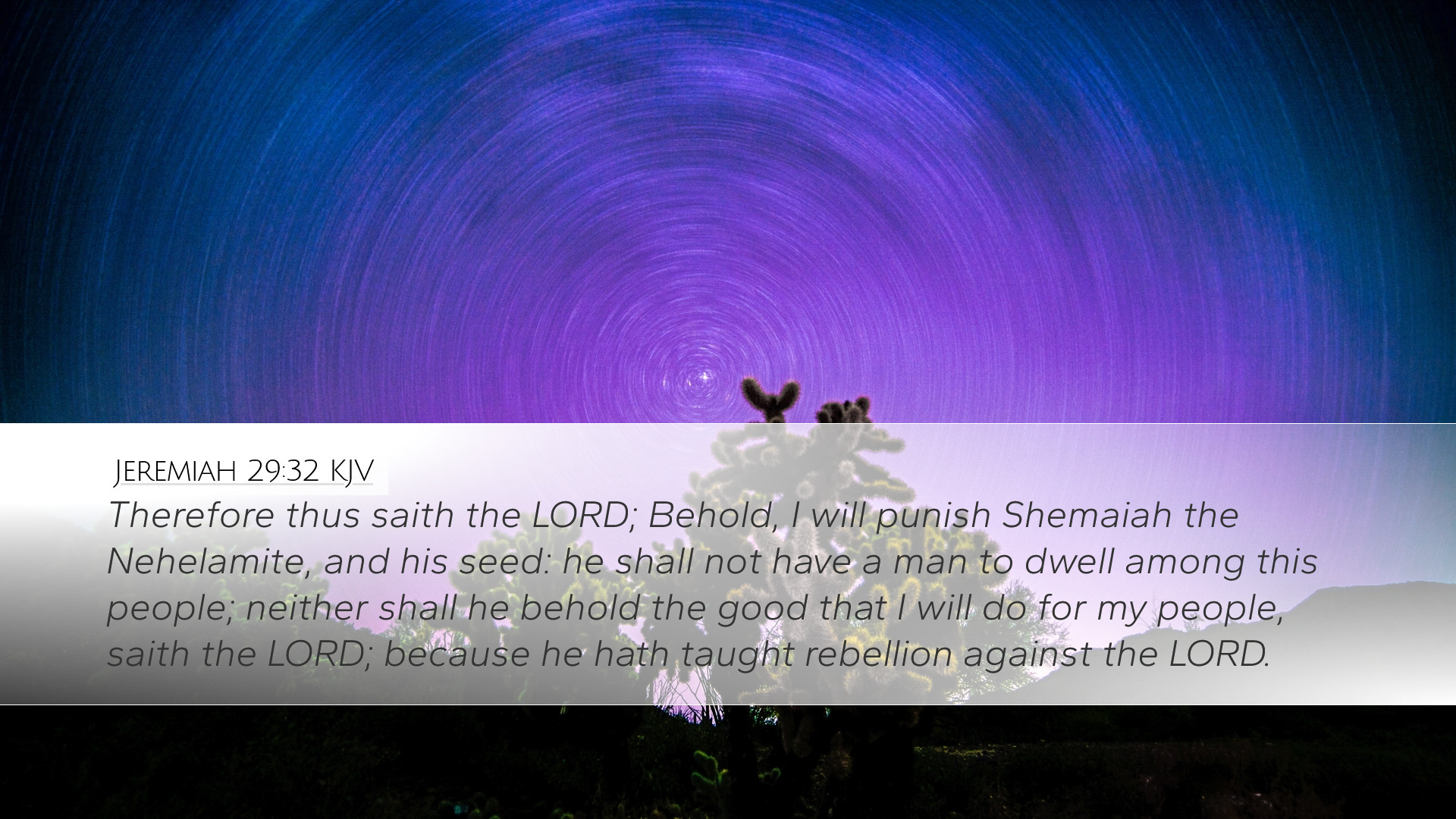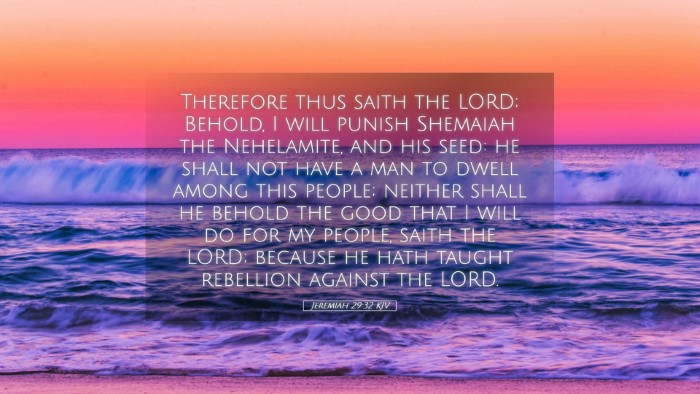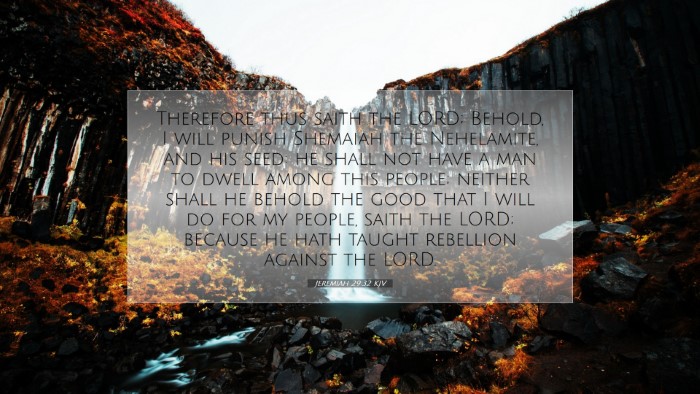Commentary on Jeremiah 29:32
Verse Context: Jeremiah 29:32 states, "Therefore thus saith the LORD; Behold, I will punish Shemaiah the Nehelamite, and his seed: he shall not have a man to dwell among this people, neither shall he behold the good that I will do for my people, saith the LORD; because he hath taught rebellion against the LORD." This verse is part of a larger discourse in which God communicates His plans and judgments regarding the people of Israel, particularly those in exile.
Historical Background
Jeremiah's ministry occurred during a tumultuous time in Israel's history. The Babylonian exile was a pivotal event, marking the consequence of Israel's disobedience. Shemaiah, a false prophet, is singled out for his misleading teachings that encouraged rebellion against God’s established order. The passage serves as a clarion call against false prophets and highlights God's sovereign authority over His people.
Insights from Public Domain Commentaries
Matthew Henry's Commentary
Matthew Henry emphasizes the divine judgment awaiting Shemaiah and his followers, illustrating the seriousness of rebelling against God. He notes that Shemaiah's name, meaning 'God has heard,' ironically signifies the opposite of his actions, which do not align with the character of a true servant of God. Henry underlines the theme of accountability, asserting that those who mislead others will face dire consequences, including the loss of their legacy and the ability to enjoy the blessings of God’s people.
Albert Barnes' Notes on the Bible
Barnes highlights Shemaiah's role as a representative of false prophets and critiques the nature of his prophecy, which incited dissent among the exiles. He draws attention to God's pronouncement of punishment, asserting that Shemaiah will not witness the restoration and blessings administered to Israel. Barnes points out the tragedy of spiritual leaders who lead their followers astray, thus ensuring their own spiritual demise and stripping away their future generations' hope.
Adam Clarke's Commentary
Clarke delves into the implications of Shemaiah's rebellion and the consequences prescribed by God. He elaborates on the significance of Shemaiah's lack of a legacy, positing that this marks a severe spiritual indictment—one that reflects on the necessity of true prophecy and faithful witness. Clarke also connects this situation with the broader theme of hope amidst despair, indicating that despite judgment, God remains faithful to His covenant promises for the remnant of His people.
Theological Themes
- Judgment and Justice: The verse illuminates God's justice, particularly in response to rebellion. It serves to remind both theologians and church leaders of the importance of fidelity to God’s commandments.
- Authority of Prophecy: The distinction between true and false prophecy is crucial, urging pastors and scripture interpreters to remain discerning about the teaching they embrace and promote.
- Legacy and Influence: The passage vividly portrays the idea that one's spiritual legacy is influenced by their obedience or disobedience. Church leaders must consider their impact on future generations.
- Hope for Restoration: Despite the grim judgment pronounced on Shemaiah, the broader narrative in Jeremiah speaks of God's eventual restoration for His people, a theme that resonates hope in the lives of believers.
Application for Today
For pastors, this passage serves as a reminder of the seriousness of their calling and the impact of their teachings on congregations. It calls for a commitment to integrity in ministry and faithful adherence to God's Word. For students and scholars, the text invites deeper exploration of prophetic literature and the implications of divine judgment, ensuring that historical contexts inform modern interpretations. Ultimately, this verse challenges all Christians to pursue righteousness and fidelity to God's commands, encouraging vigilance against misleading teachings in the contemporary church.


